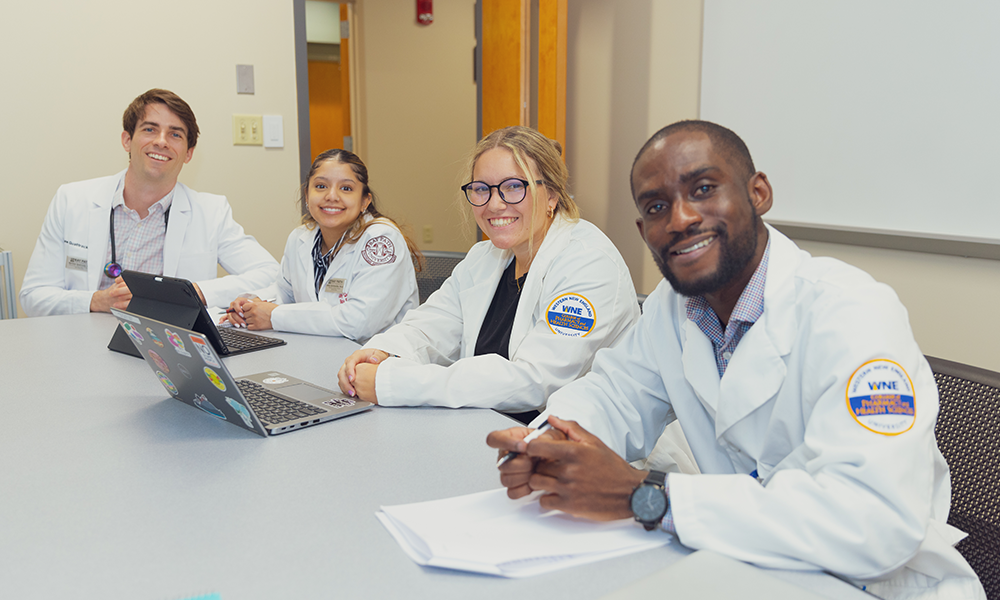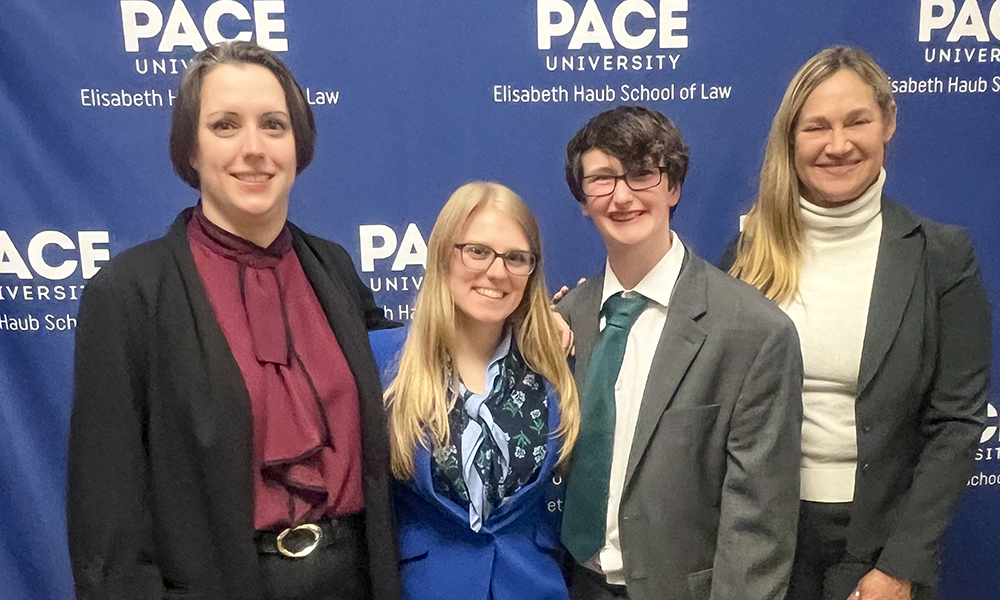The College of Pharmacy and Health Sciences at Western New England University (WNE) recently spearheaded an innovative Interprofessional Education Simulation event in collaboration with the Pioneer Valley Interprofessional Practice and Education Collaborative (PV-IPEC) on April 9, 2024. This marked the sixth year of hosting this event. PV-IPEC, a program under the Healthcare Workforce Partnership of Western Massachusetts, led by the MassHire Hampden County Workforce Board, played a pivotal role in orchestrating this groundbreaking initiative.
Under the leadership of Senior Associate Dean for Academic Programs Beth Welch and Peta-Gaye Johnson Director of Healthcare Workforce Initiatives for MassHire who coordinates PV-IPEC, WNE Pharmacy and Occupational Therapy (OT) students joined forces with Physician's Assistant students from Bay Path University and Nursing students from American International College (AIC). This collaboration aimed to foster a collaborative approach to patient care, aligning with the evolving demands of modern healthcare.
"The Interprofessional Education Simulation event provided a unique opportunity for students to learn and collaborate across disciplines," said Dr. Welch. "It's crucial for future healthcare professionals to develop the skills necessary for effective teamwork and communication."
The escalating complexity of healthcare in the United States underscores the necessity for health professionals to collaborate effectively and devise novel models of team-based care. Accrediting bodies of health professions academic programs mandate the integration of interprofessional education to equip students with the requisite skills for collaborative practice. The event brought together students from various disciplines, including physician assistant studies, nursing, pharmacy, and occupational therapy, to engage in activities designed to address the core competencies outlined by PV-IPEC.
During the simulation, healthcare teams comprising six to seven members from different health professions operated within an ambulatory care environment. Under the guidance of faculty facilitators, students navigated through pre-briefing sessions, simulations, and debriefing sessions, focusing on teamwork, roles and responsibilities, values, and interprofessional communication - the pillars of effective collaboration in healthcare.
The overarching goals of the program were twofold: first, to clarify the roles of physician assistants, nurses, pharmacists, and occupational therapists within the healthcare team; and second, to cultivate the communication skills essential for seamless collaboration in patient care.
Participants successfully identified and rectified misconceptions about other health professions, collectively formulated and executed patient care plans, and critically evaluated healthcare team interactions and communications for ongoing enhancement.
The Interprofessional Education Simulation event stands as a testament to WNE's commitment to fostering a collaborative learning environment that prepares students to meet the evolving challenges of modern healthcare, ensuring optimal patient outcomes through interprofessional collaboration.





